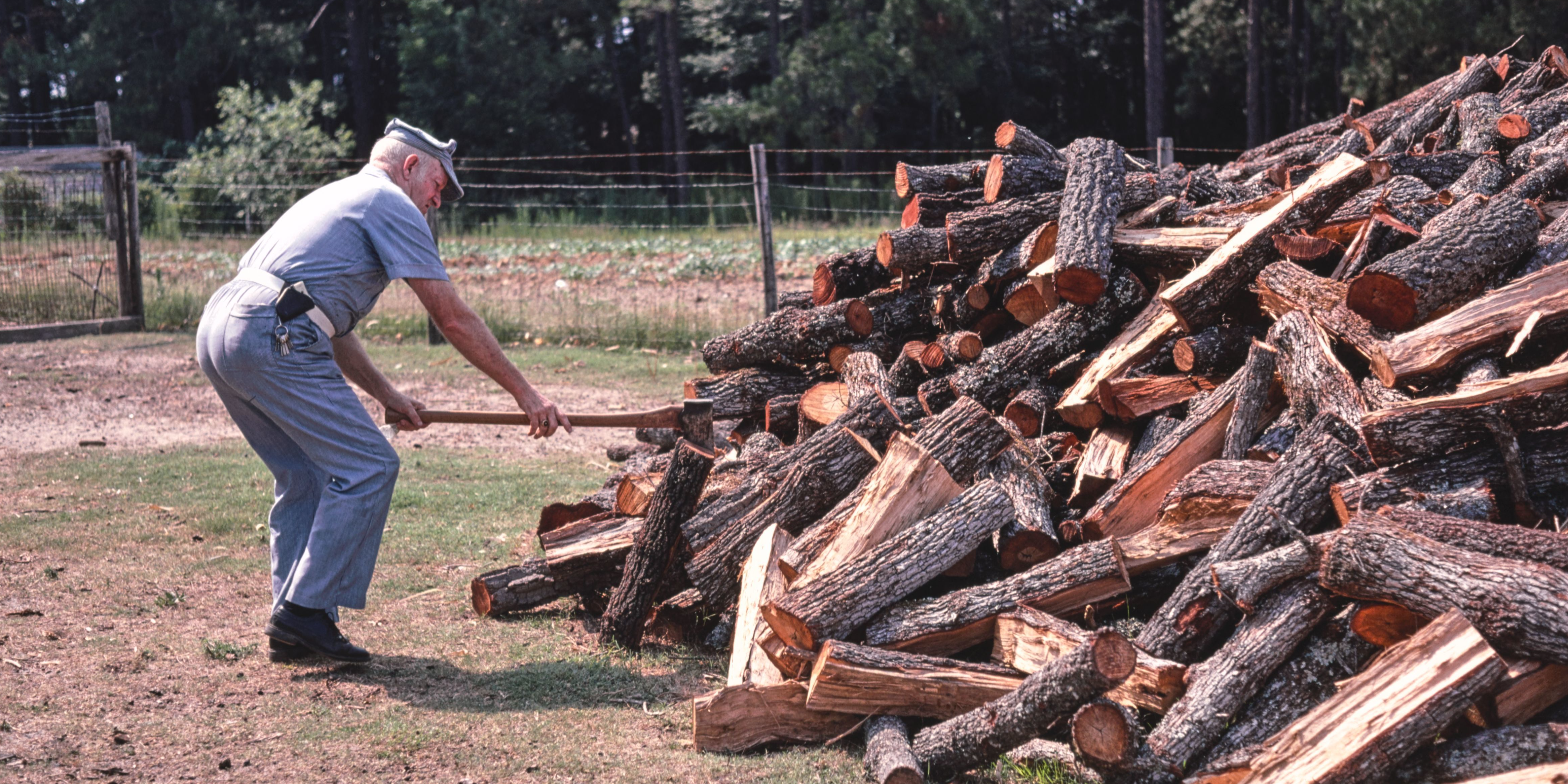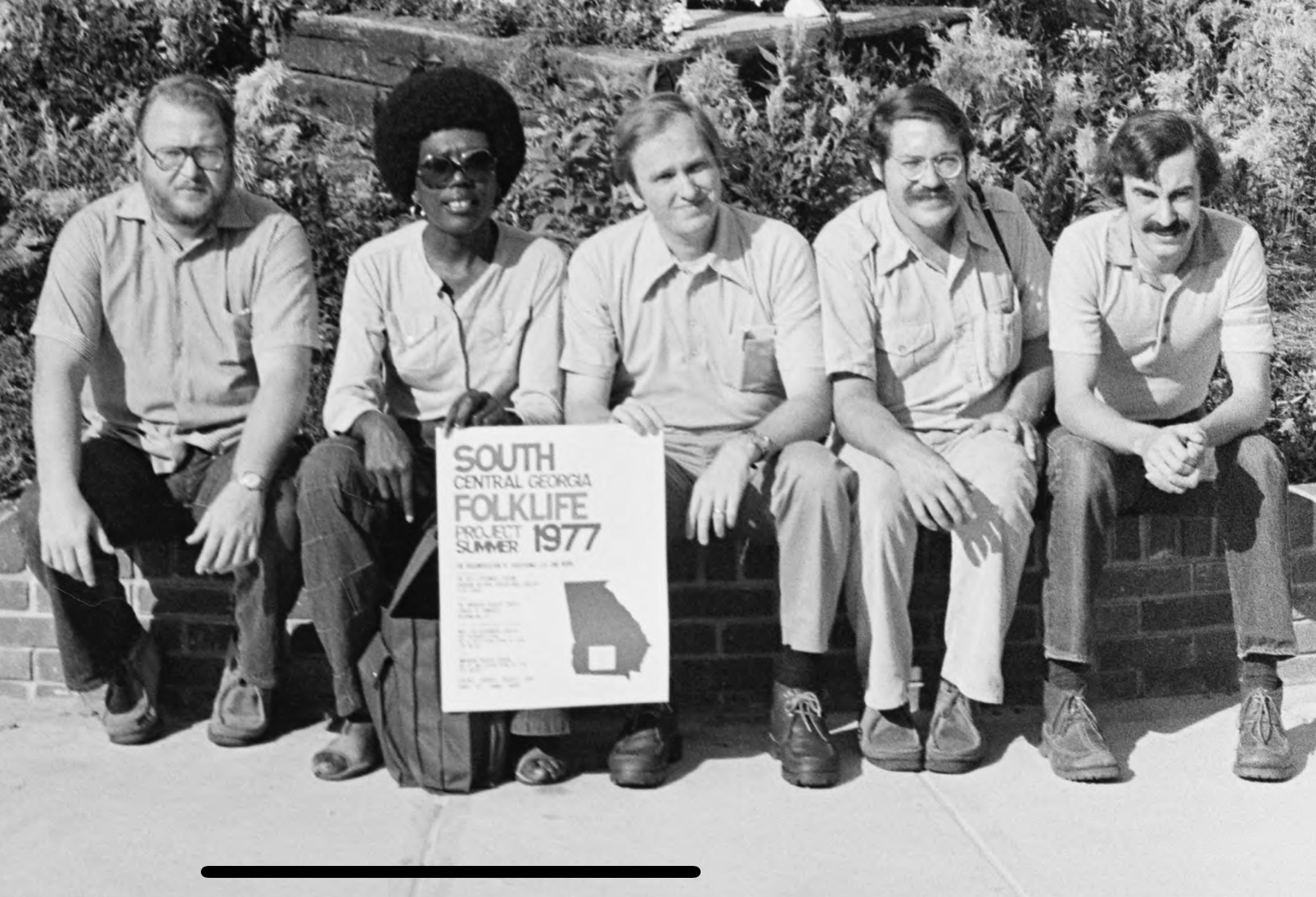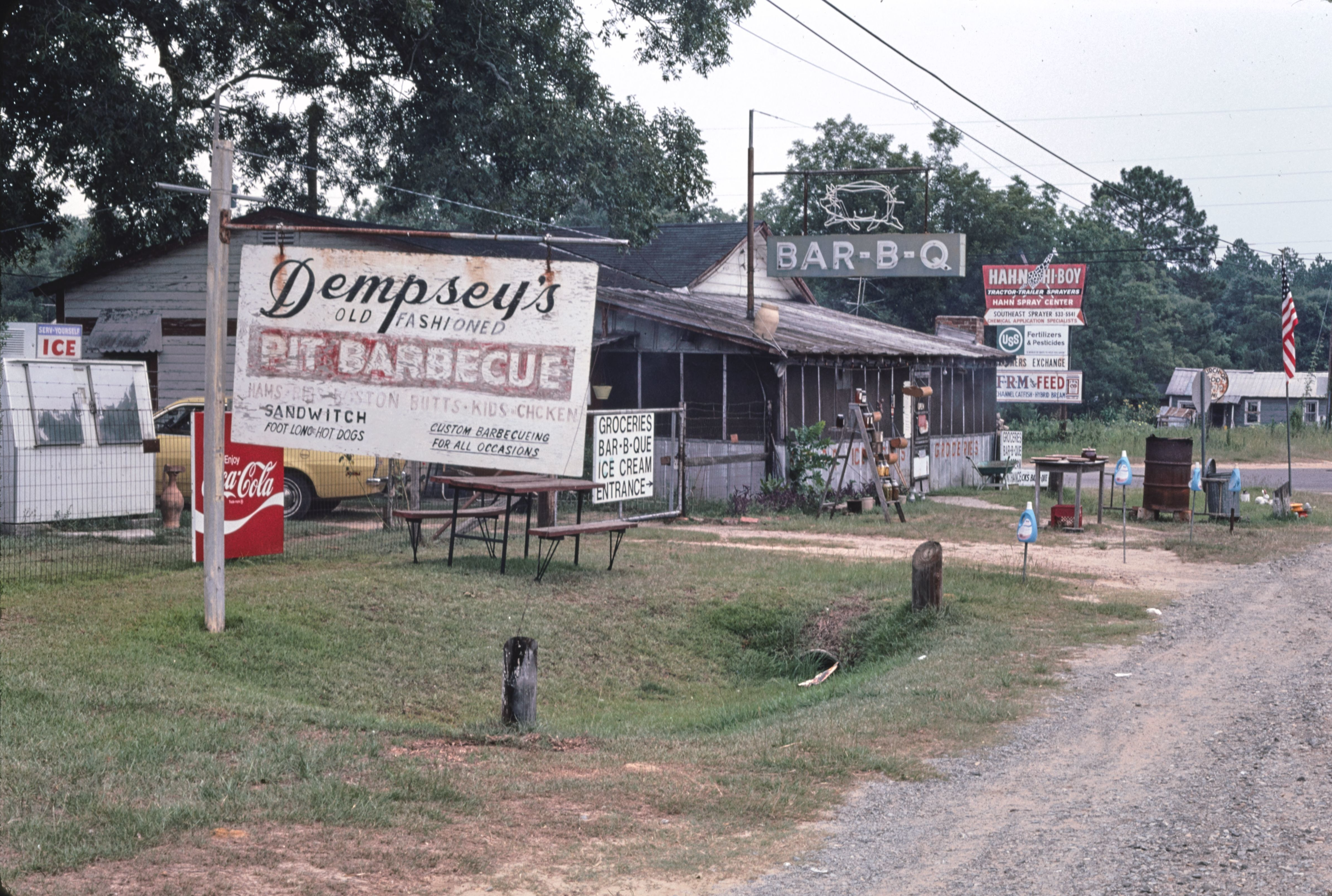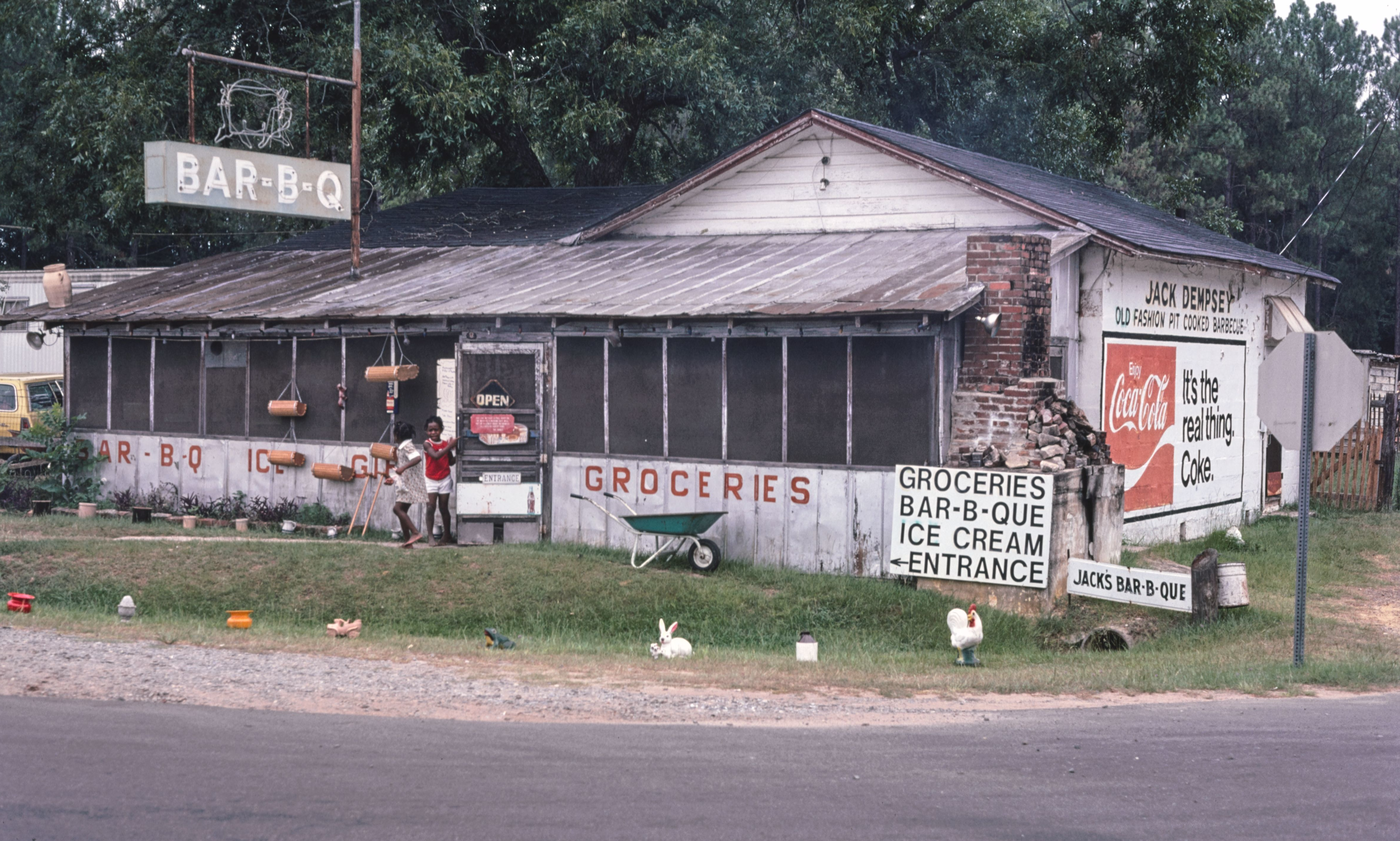An Oral History with Jack Dempsey

Library of Congress 2
The South-Central Georgia Folklife Project 1 was produced as a joint effort between the American Folklife Center of the Library of Congress and the Arts Experiment Station of Abraham Baldwin Agricultural College in Tifton, Georgia. The vast collection contains nearly 25,000 items.2 One of these items recently captured my attention: an oral history with my great-grandfather conducted on Tuesday, July 26th, 1977.
In the summer of 1977, the American Folklife Center (AFC) dispatched 6 fieldworkers to canvas 8 counties in south Georgia— Ben Hill, Berrien, Colquitt, Cook, Irwin, Tift, Turner, and Worth. Abraham Baldwin Agricultural College (ABAC) in Tift county was neatly situated at the center of the chosen region and served as the project's headquarters.

At the time, the AFC was newly founded, tasked by Congress the previous year “to preserve and present American Folklife.”7 Likewise, the Arts Experiment Station at ABAC was a new organization established only the year before; this by way of a grant from the National Endowment of the Arts for a mission to “focus on the cultural assets and needs of South Georgia communities.” These new groups collaborated to collect the data which became the South-Central Georgia Folklife Project.
They gathered all sorts of materials over six weeks, documenting the regional culture by interviewing residents for oral histories, taking photos, attending church sermons, and even drinking moonshine with locals. 5

Library of Congress 6
As I was scanning oral histories in the collection, my great-grandfather’s name popped out— Jack Dempsey. Initially I wasn't sure it was him. There was nothing in the metadata to cross-reference his identity and I wouldn't trust myself to identify him by voice alone. So I scrubbed into the audio and listened. Hearing references to barbecue added weight to my hunch that this was our man. Family lore told he ran a barbeque establishment. Sure enough— more listening (and cross-referencing with my mother) confirmed it was him.
The fieldworker who interviewed Dempsey and took photos of the store was David Stanley— a man in his mid-thirties from the University of Texas at Austin. Stanley wrote rich field notes, describing Dempsey, 58, as a “colorful character” who took pride in his one-man barbeque operation.4 This is evident in the audio from their third interview (referenced above) which appears to be the only encounter recorded.

Library of Congress 8
Much of the dialogue contains folkish insights for historians. For instance, Dempsey’s casual mention of capital punishment initially feels out of place, but becomes clear when contextualized. The topic was hotly controversial at the time.
In 1972 the Supreme Court reduced all pending death sentences to life imprisonment in the case Furman v. Georgia. In a 5-4 decision, the Court held that Georgia’s death penalty statute could result in arbitrary sentencing due to the complete sentencing discretion held by the jury. As a public policy, capital punishment was nullified as “cruel and unusual” under the 8th amendment until such time that state criminal statutes could ensure the penalty was not applied arbitrarily or discriminatorily.

Library of Congress8
Georgia reached the Court again in 1976, a year before Dempsey’s interview. By this time the state had revised its statues to limit jury discretion. These revisions satisfied the Court, which affirmed the constitutionality of capital punishment under the 8th amendment in Gregg v. Georgia, again opening the door for executions.
This back and forth meant that the issue— and Georgia's relationship to it— was part of the national political conversation. It would make sense for Dempsey to state his position, especially since it served as a segue to monologue on the state of America— a country he described as having “overslept.”
“I believe in law and order above anything,” he said. If the death penalty were abolished— according to Dempsey— the thugs, thieves, gangsters and outlaws would overwhelm penetentiaries and cause misery for law-abiding people.
Dempsey also cautiously referenced the unfolding process of desegregation, or, by his token, forced integration. “I think each neighborhood knows its situation better than anybody,” he said. “I don’t ever believe we’ll ever have an educational system that’ll work like we’ve had for the last few years- because anything that’s forced on you, that causes a bitterness and a hatred. And I don’t think anything will work successfully under those circumstances.”
Other stories which warrant highlighting include Dempsey’s former boss in Texas, a man he described as a “hellcat on wheels”; a 115-year old black man who suffered from tuberculosis, with arms “no wider than mop handles”; and losing “every nickel and dime” farming Minnesota’s Red River Valley.
Big thanks to AFC reference librarian Todd Harvey for helping me navigate the archives at the Library of Congress.
References
- 1. South-Central Georgia Folklife Project collection (AFC 1982/010), Archive of Folk Culture, American Folklife Center, Library of Congress, Washington, D.C.
- 2. Stanley, David. Willacoochee, Georgia; Kirkland Variety Works boat builders; Jack Dempsey's barbeque, Willacoochee, Georgia. Willacoochee, Georgia. Photograph. Retrieved from the Library of Congress,
. - 3. Stanley, David, and Jack Dempsey. Conversation and stories with Jack Dempsey, Tifton, Georgia. Tifton, Georgia, 1977. Audio. Retrieved from the Library of Congress,
. - 4. Stanley, David. Documentation -- Field Notes -- David H. Stanley Folder 1 of 2. Georgia, 1977. Manuscript/Mixed Material. Retrieved from the Library of Congress,
. - 5. Adler, Thomas A, et al. Three students' local legends, part 1, Abraham Baldwin Agricultural College, Tifton, Georgia. Abraham Baldwin Agricultural College, Tifton, Georgia, 1977. Audio. Retrieved from the Library of Congress,
. - 6. Stanley, David, and David Stanley. Beverly Robinson; Fieldworkers; W.D. Marchant farm and barn. Georgia. Photograph. Retrieved from the Library of Congress,
. - 7. PUBLIC LAW 94-201 94th Congress, H. R. 6673, January 2, 1976. Accessed via https://www.loc.gov/folklife/public_law.html
- 8. Stanley, David. Transferring tobacco to bulk barn Talley fam, Jack Dempsey's barbeque pit, Tift County, Georgia. Tift County, Georgia, July 20 and 23. Photograph. Retrieved from the Library of Congress,
.